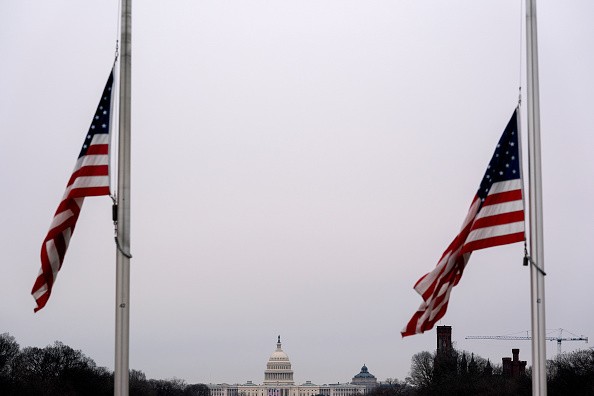The Federalist: America's Institutional Decline Could Lead to US Looking Like Mexico

America's institutional decline could result in the U.S. looking like Mexico, an episode of The Federalist's Radio Hour discussed.
Federalist Political Editor John Daniel Davidson was joined by the publication's Culture Editor Emily Jashinsky as they discussed the possibility of America's institutional decline resulting in a Mexico-like society.
For Davidson, the reality of America's institutional decline isn't something that could lead people to believe that the U.S. can compare to Europe. Instead, Mexico is a closer comparison.
"I've been saying this for a couple of years now," Davidson said.
America's Institutional Decline Like Mexico's Low-Trust Society
During the discussion, Davidson said Mexico had a "low-trust society."
He noted that in Mexico, institutions failed, elites are corrupt and people turned away from institutions of public life. This applies not just for black-market industries but also "a kind of private patronage system that is a workaround to failed institutions," he continued.
Davidson believes the biggest indicator that there would be a more untrustworthy future for America's institutions was the "rapid cultural decline of families and young men."
People are lacking a sense of purpose or importance, but violent activity like gangs and political street fights make them feel strong, Davidson said.
He was also saddened that "there are not enough voices" to keep dissuade them from the violence activities they could get involved in.
Market Watch's Arvind Subramanian also said in an opinion article that the coronavirus made America's institutional decline much more obvious.
But he also noted that America's institutional decline was "over-predicted and under-believed."
Before the pandemic, key institutions in the country were already signaling decay, Subramanian said: The Congress's boundaries were constantly challenged and the Supreme court was "politicized," to name a few.
However, many citizens refuse to acknowledged America's institutional decline, the article said.
He noted that many Americans are still convinced that the country's web of institutions can provide resilience for the nation.
But the U.S. has so far been faring badly when it came to coping with the pandemic at more than 22 million cases.
Related Story : California in Dire Need of Medical Workers Due to Worrisome Shortage of Volunteer Health Corps
According to Market Watch, the nation made up about 32% of the world's COVID-19 cases.
New Norms, Beliefs to Rise Amid America's Institutional Decline
While not comparing the current state of the country to any other nation, The Atlantic writer David Brooks noted that some periods of moral convulsion in the U.S. share common features.
When people witness America's institutional decline, it usually came with the following changes, said the publication: disgust in the state of society, plummeting trust in institutions, widespread indignation and intense contempt for established power.
Amid all this, there is an expected emergence of new norms and beliefs that could transform national consciousness.
Brooks also said that was a significant difference in Baby Boomers' sense of security and Millennial and Gen Z's lives which are riddled with threats to finances and family.
As this generation enters young adulthood, there would be a noticeable emergence of new culture.
Subramanian added that it may be alarmist to think that failures in American institutions threatens the nation's democracy, but denying that there is a decline altogether was a "dangerous denialism."
Subscribe to Latin Post!
Sign up for our free newsletter for the Latest coverage!
© 2026 Latin Post. All rights reserved. Do not reproduce without permission.













